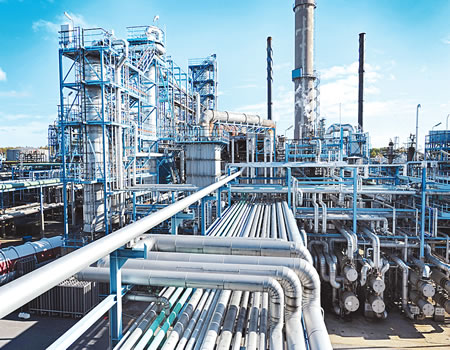The European Union believes a total gas supply cut from Russia is on its way and is preparing to cushion the impact of such an incidence. The bloc looks to replace gas from Russia with Nigerian supplies.
According to information from Reuters, Matthew Baldwin, deputy director general of the European Commission’s energy department, said the European Union is seeking additional gas supplies from Nigeria as the bloc prepares for potential Russian supply cuts.
Russia seems to be playing politics with its gas supplies, using technical issues as a pretext to reduce deliveries of the commodity to the Eurozone. The country had previously cut down gas export to the EU and recently warned of a further reduction in the supplies sent via the biggest pipeline to Europe—Nord Stream 1.
Also, Russia halted the delivery pipeline which accounts for a third of exports to the EU for 10 days for maintenance and later resumed supplies at a reduced capacity. This disruption in supply threatens a severe gas supply shortage for Europe and could spill over to weigh on economic performance in the euro area.
The European Union imported 155 billion cubic meters (BCM) of gas from Russia in 2021, and the prospect of an unprecedented total stop is raising concern about gas shortages, still higher prices, and economic impacts, according to the International Monetary Fund (IMF).
Following Putin’s warning of a gas supply cut, the European Union told member states to cut gas usage by 15% until March as an emergency step toward managing the supply contraction.
The IMF stated that “in some of the most-affected countries in Central and Eastern Europe—Hungary, the Slovak Republic, and the Czech Republic—there is a risk of shortages of as much as 40 percent of gas consumption and gross domestic product shrinking by up to 6 percent. The impacts, however, could be mitigated by securing alternative supplies and energy sources, easing infrastructure bottlenecks, encouraging energy savings while protecting vulnerable households, and expanding solidarity agreements to share gas across countries.”
Nigeria gives the EU a sign of hope as it is improving security in the Niger Delta and plans to re-open the Trans Niger pipeline after August, which would yield more gas exports to Europe. The EU imports 14% of its total LNG supplies from Nigeria and according to Matthew Baldwin, deputy director general of the European Commission’s energy department, there is potential to more than double the volume.
Last year, Nigeria exported 23 billion cubic meters (bcm) of gas to the EU. Effective management of theft and vandalism of pipelines could raise Nigeria’s operating capacity and also result in an additional supply of LNG to Europe.
What are the EU Members Doing?
In cushioning supply shocks and mitigating the impact of a total shutoff of Russia’s gas, European nations have been sourcing alternative gas supplies and also building or expanding terminals to import liquefied natural gas (LNG).
- Italy got assurance from North African gas producer–Algeria, to supply more gas to the country under a $4 billion deal, as Algeria has pipelines running to Italy–notably one of the steps being taken by the EU members.
- Portugal’s Sines port is also ready to handle the onward shipment of LNG arriving in large tankers and which could be transferred to smaller ships to head to other European states, according to Reuters.
The EU hopes to adjust to gas supply disruptions by accessing new supplies where feasible, using alternative sources of energy, and via demand reductions.










